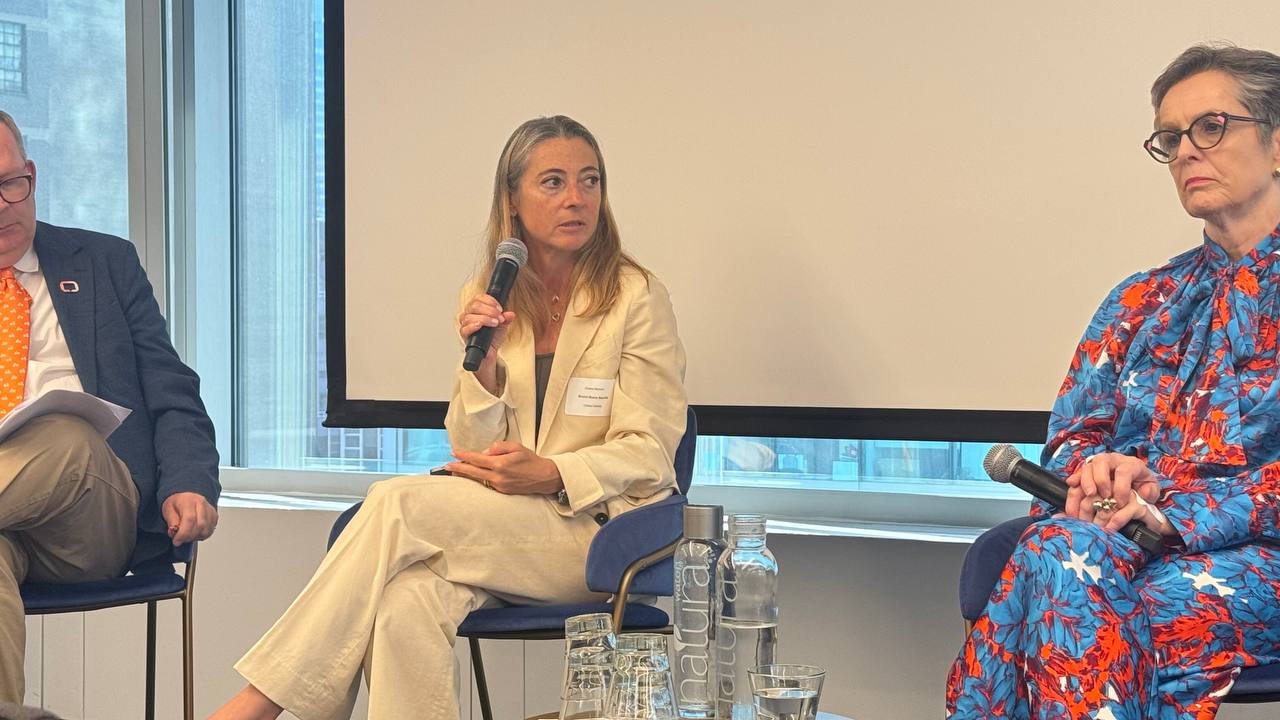At the United Nations General Assembly (UNGA) side event hosted by the Union for International Cancer Control (UICC), Chiara Moroni—Global Policy & Government Affairs Strategy Lead at Bristol Myers Squibb (BMS) and former long-standing member of the Italian Parliament—delivered a powerful call to action:
“If you are coming with a problem and you don’t have a solution, you are part of the problem.”
This message was not just rhetorical. It underscored a broader theme—governance and implementation of national cancer control plans (NCCPs) as a concrete solution to one of the most pressing global health crises: the escalating burden of cancer.

Beyond Adult Cancers
Opening her remarks, Moroni emphasized that the cancer burden is not confined to adults. “Every year, over 400,000 children are diagnosed with cancer,” she said. This staggering figure was a reminder that comprehensive national strategies must address the entire population, with special attention to vulnerable groups.
Why National Cancer Control Plans Matter
National Cancer Control Plans provide governments with a structured framework that integrates:
- Prevention
- Early detection
- Diagnosis and treatment
- Palliative care
- Survivorship
Such plans translate ambition into measurable goals, evidence-based investments, and systems for monitoring progress. They are more than administrative documents—they represent a national commitment to saving lives and improving patient outcomes.
Global Progress and Remaining Gaps
Moroni highlighted the milestones in global cancer governance:
- 2005: The World Health Assembly adopted its first resolution on cancer.
- 2017: A renewed commitment to cancer prevention and control was endorsed.
- 2010: Only half of countries had an operational NCCP.
- 2020: More than 80% had adopted such plans.
Yet she cautioned that progress on paper is not enough. “A cancer control plan is more than just a document. It’s a roadmap for reducing the burden of cancer, saving lives, and ensuring no one is left behind.”
From Plans to Action: Integrating Cancer Control into Broader Health Systems
Moroni stressed that the real test of national cancer control plans lies not in their design but in their implementation. To translate strategies into tangible health gains, she argued, countries must commit to four essential enablers: strong political leadership, sustainable financing, robust accountability systems, and partnerships that bring together government, civil society, and the private sector. At the same time, she emphasized that cancer cannot be addressed in isolation.
NCCPs must be embedded within broader non-communicable disease agendas, linked to tobacco and alcohol regulation, primary healthcare strengthening, and mental health services. Such integration, Moroni explained, builds more resilient and equitable health systems capable of serving patients across the spectrum of chronic diseases. She closed with a call for collective responsibility, underlining that collaboration across all sectors is vital to ensure that no patient is left behind, and expressed her gratitude to BMS for supporting the event and advancing this shared global mission.


